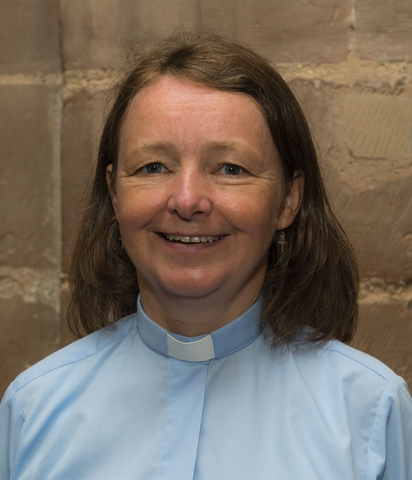
June News from the Clergy
29 May 2019 • From the Clergy
“I hope you’ll feel better soon;” “I hope you have a good holiday;” “I hope I get a question on … in the exam;” “I hope to be able to come to the party.”
Hope is a small word which we all use, probably on a daily basis, but what exactly do we mean by it?
The Concise Oxford Dictionary defines hope as: “expectation and desire combined.” In reality, it’s one of those words which will mean different things to different people depending on their circumstances.
For example, the bride hoping for sunshine on her wedding day means something very different from the farmer hoping for rain to revive his parched crops. For the bride, lack of sunshine will be disappointing, but won’t really detract from the joy of the day, and certainly won’t be a long-term problem. Whereas for the farmer a lack of rain could be devastating. So, to hope for something can be an expression of want or need. More even than that, hope is seen as a fundamental human right. Speaking at the Vatican in June last year, Pope Francis described it as “the first and most fundamental human right” and to deny a person hope is, in a sense, to deny their humanity.
Later in this magazine you’ll find an article on Kintsugi Hope and last month I wrote about the hope cards of prisoners soon to be released. Reflecting on the theme of hope for this letter and on those things, led me to remember a debate I’d once heard on whether or not prisoners are entitled to hope or if that’s one of the rights they forfeit as a result of their crimes.
A search on Google led me to an article by Dirk Van Zyl Smit (Guardian, 3rd January 2014) which asked if life sentences for some of “the worst” crimes should really mean life, with no chance of release, except perhaps when they are at death’s door. Zyl Smit suggested that to enforce this sort of sentence which denies any form of hope, also indicates that “we” – collectively as society – have permanently written off these people, with no chance that, with the passage of time, they may change for the better.
This is a huge dilemma for many Christians; some crimes are so dreadful that we may feel no punishment is too severe; and yet, at the core of our faith is a loving and merciful God who promises forgiveness for all who seek it. We are not to judge; we are to be generous in our forgiveness and allow others the second chances we would ask for ourselves. It is not for us to “write off” anybody. Does anybody have the right to deny another human being the right to hope?
Which brings us to the question of the Christian understanding of hope.
Throughout the Bible there are numerous references to hope and Paul is particularly eloquent on the subject of Christian hope, basing it firmly in the person of Christ. Because of Christ, there is nothing wishy-washy about the Christian’s hope. It is not some vague wishful thinking, but a confident expectation of what is to happen in the future, based on our knowledge and experience of a loving and faithful God.
Of all the people in the world, Christians should be the most hopeful, finding joy and strength in that hope. It is a hope which has given - and continues to give - persecuted Christians the strength and courage to endure suffering and death. It is a life-changing force which enables us to seek to live according to the teachings and example of Jesus Christ.
Paul wrote that if our hope was only for better things in this life, we would be the most pitiable of all people; but because of Jesus and the events of Easter, our hope is indescribably more than that. We have a hope that is not only sure, but eternal. It is a hope which, far from wanting to deny anybody, we should be rushing to share with anybody and everybody.
But before we can do that, we need to fully grasp it for ourselves! So, in the words of Paul to the Romans (Romans 15:13, NIV):
“May the God of hope fill you with all joy and peace as you trust in him, so that you may overflow with hope by the power of the Holy Spirit.” Amen!
Sarah